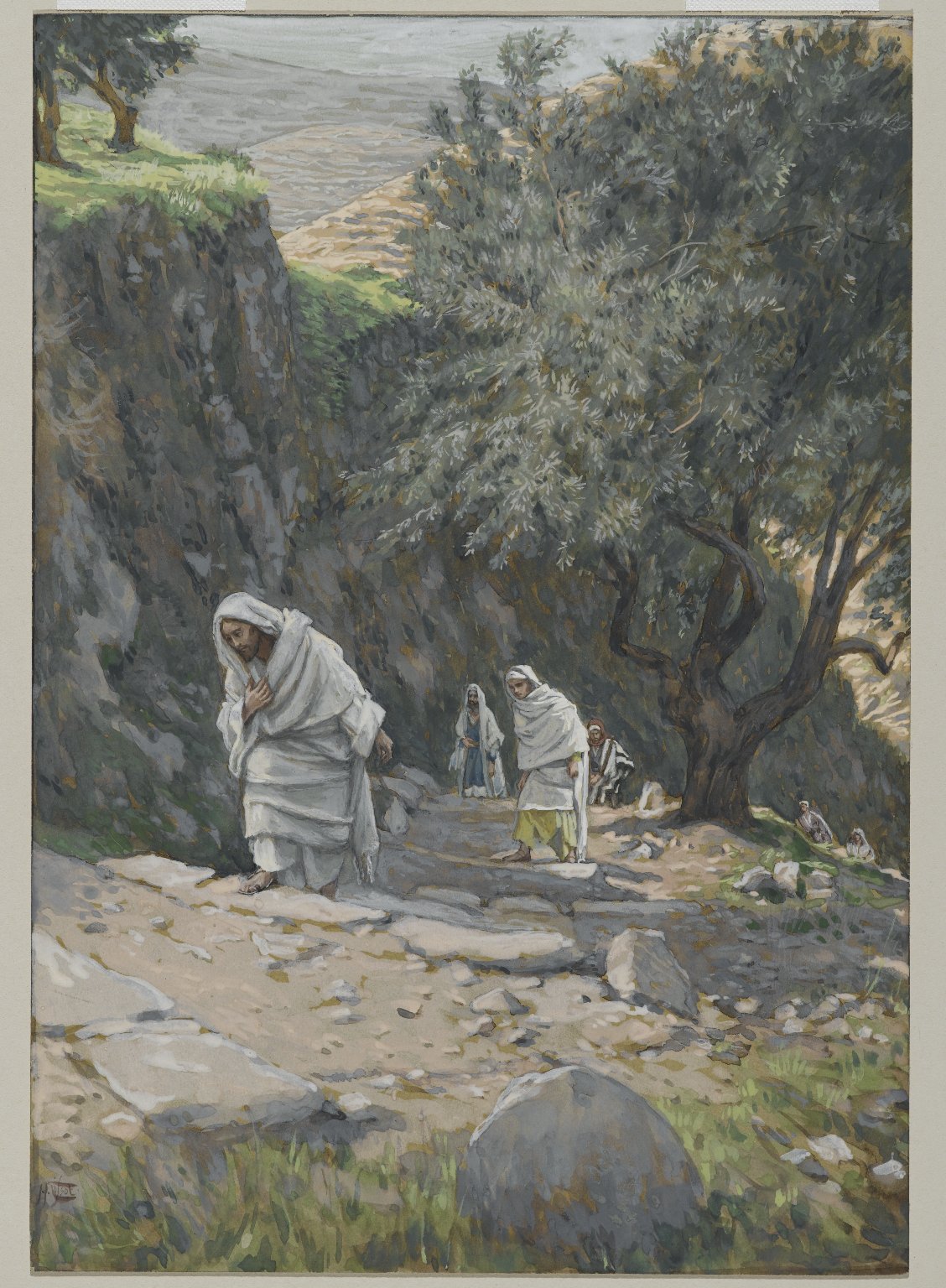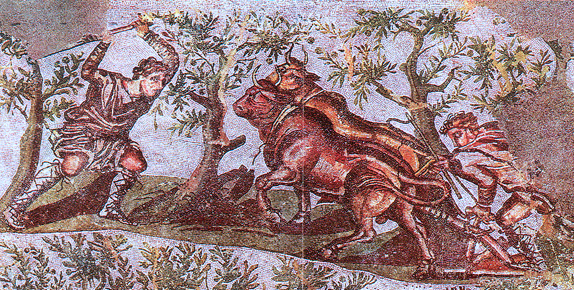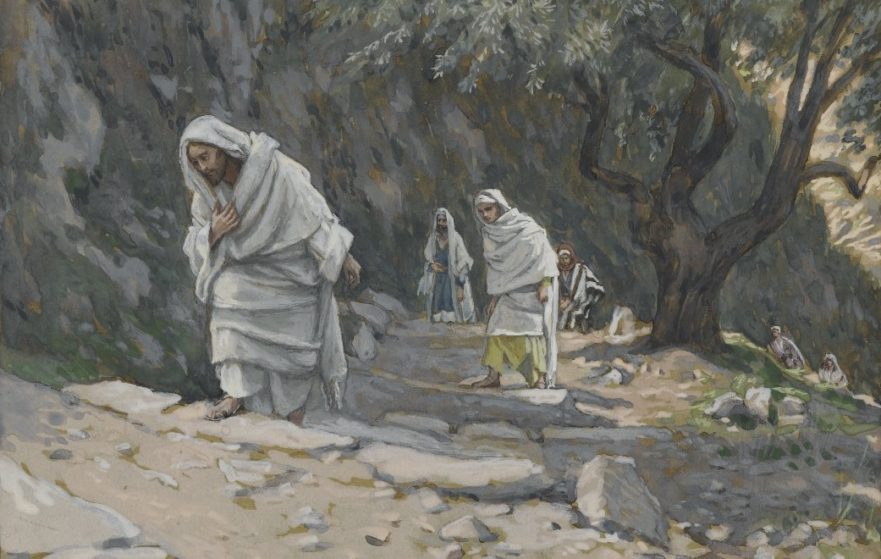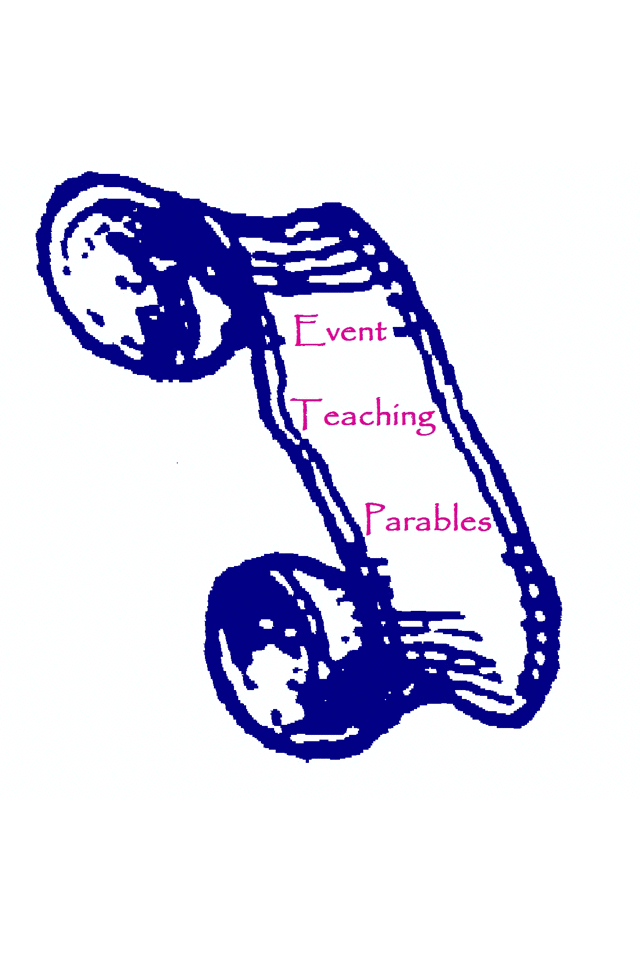Updated: 24 November 2020
The Gospels of Matthew and Luke relate how Jesus turned away certain disciples because he believed they were not up to the task. Each had attachments to home, family, property or profession that made it impossible for him to commit himself to the rugged, itinerating lifestyle of a full-time disciple. The Gospel of Luke preserves two illustrations regarding people who consider taking on risky enterprises, but who decide upon reflection that it is best not to begin the enterprise if they are not certain of success. In one illustration a farmer contemplates building an agricultural tower to protect his harvest, but he concludes that since his funds are low it is best not to begin and be unable to finish the venture. In the second a king considers challenging a more powerful adversary, but he concludes that it is better to sue for terms of peace than to lose his armies in battle. The two similes, which in Luke are inserted between the second and third of three similarly structured sayings about discipleship, are no longer preserved in their original context. Yet the difficult decisions Jesus had to make regarding which prospective disciples to accept and which to turn away are analogous to the facing up to hard facts described in the Tower Builder and King Going to War similes.
Robert Lindsey believed that at a certain stage in the pre-synoptic transmission of the Jesus tradition “complexes” consisting of a narrative incident, continuing with instruction and concluding with illustrations were broken up into their constituent parts. Narratives describing incidents in Jesus’ life were separated from the teaching materials that arose from those incidents. The breaking up of “complexes” was the work of the Anthologizer, who subsequently rearranged the pieces according to theme and genre into a work Lindsey called the Anthology (Anth.). According to Lindsey, it is sometimes possible to reconstruct these narrative-sayings “complexes” by searching for pericopae that are no longer in their original contexts in the Synoptic Gospels, but are related by common themes, issues and vocabulary.
We think it is possible that the stories of how Jesus turned away prospective disciples that appear in a pericope we have named Not Everyone Can Be Yeshua’s Disciple and the Tower Builder and King Going to War similes once belonged to the same narrative-sayings “complex.” If so, the middle teaching section appears to have been lost.[1] Perhaps the teaching section consisted of little more than one of Jesus’ disciples asking him why he had turned away a prospective follower and Jesus’ reply that taking on as a disciple someone who was not up to the challenge would only make him look foolish and hinder him in the accomplishment of his God-given task. The twin similes would then have reinforced Jesus’ reply.

Due to its incompleteness, the complex we have entitled “Yeshua’s Selectivity in Accepting Disciples” lacks key distinctive vocabulary that might join the pericopae together. We can imagine that if the middle section of the complex had been preserved, it would contain some of the vocabulary present in Not Everyone Can Be Yeshua’s Disciple and the Tower Builder and King Going to War similes. Unfortunately, this middle section has been lost and therefore “Yeshua’s Selectivity in Accepting Disciples” is not only incomplete, it is more conjectural than most of the other reconstructed complexes we have proposed.
Click on the following titles to view the Reconstruction and Commentary for each pericope in “Yeshua’s Selectivity in Accepting Disciples.”
 Not Everyone Can Be Yeshua’s Disciple
Not Everyone Can Be Yeshua’s Disciple
 Tower Builder and King Going to War Similes
Tower Builder and King Going to War Similes
To demonstrate how the pieces of “Yeshua’s Selectivity in Accepting Disciples” might have fit together, we have assembled our paraphrases of the Hebrew reconstructions of the individual segments below. We have also assembled the Greek and Hebrew reconstructions of the entire complex and presented them following the English paraphrase.
A certain individual approached Yeshua and said to him, “Rabbi, wherever you go, I’ll follow.” But Yeshua said, “Beasts and birds have homes, but those who join me won’t even enjoy that basic comfort.”
Someone else said, “Lord, I’ll follow you after I’ve seen my dad through to the end of his days.” But Yeshua said, “Come join my life-giving mission, and let those who have not been brought to life take care of everyday existence.”
Yet another said, “I will follow you, Lord, but first let me go say good-bye to my family.” But Yeshua said, “The person who commits himself and then takes it back isn’t fit for my band of disciples.”
[Then one of his disciples asked him, saying, “Why did you turn away these people who want to become your disciples?”
And he said, “It is better not to start a thing at all than to begin and fail to bring it to completion.”]
“Can you imagine anyone who would begin construction of a watchtower without first working out the cost to see if he has enough money to complete the job? Otherwise, everyone who sees him will ridicule him. ‘Look,’ they’ll say, ‘this fellow couldn’t finish what he started!’
“Or can you imagine a king who would attack another king without first sitting down with his advisors to discuss whether he is able to withstand the king who is coming against him with an army twice the size of his own? If the consensus is that he cannot, won’t he send messengers to signal his submission to the stronger king?”
Greek Reconstruction
καὶ προσελθὼν ἄνθρωπος εἷς εἶπεν αὐτῷ διδάσκαλε ἀκολουθήσω σοι ὅπου ἐὰν ἀπέρχῃ καὶ εἶπεν αὐτῷ ὁ Ἰησοῦς αἱ ἀλώπεκες φωλεοὺς ἔχουσι καὶ τὰ πετεινὰ τοῦ οὐρανοῦ κατασκηνώσεις ὁ δὲ υἱὸς τοῦ ἀνθρώπου οὐκ ἔχει ποῦ τὴν κεφαλὴν κλείνῃ ἕτερος δὲ εἶπεν αὐτῷ κύριε ἐπίτρεψόν μοι πρῶτον ἀπελθεῖν καὶ θάψαι τὸν πατέρα μου εἶπεν δὲ αὐτῷ ἀκολούθει μοι καὶ ἄφες τοὺς νεκροὺς θάψαι τοὺς ἑαυτῶν νεκρούς εἶπεν δὲ ἕτερος ἀκολουθήσω σοι κύριε πρῶτον δὲ ἐπίτρεψόν μοι καταφιλῆσαι τὸν οἶκόν μου εἶπεν δὲ ὁ Ἰησοῦς πᾶς ὁ ἐπιβαλὼν τὴν χεῖρα αὐτοῦ ἐπ᾿ ἄροτρον καὶ βλέπων εἰς τὰ ὀπίσω αὐτοῦ οὐκ ἔστιν εὔθετος τῇ βασιλείᾳ τῶν οὐρανῶν
[missing middle section]
τίς ἐξ ὑμῶν θέλων οἰκοδομῆσαι πύργον οὐχὶ πρῶτον καθίσας λογίζεται τὴν τιμήν εἰ ἔχει εἰς τὸ ἀπαρτίζειν ἵνα μήποτε πάντες οἱ ἰδόντες ἄρξωνται αὐτῷ ἐμπαίζειν λέγοντες ὅτι οὗτος ὁ ἄνθρωπος ἤρξατο οἰκοδομεῖν καὶ οὐκ ἐδύνατο ἐκτελέσαι ἢ τίς βασιλεὺς ἐξερχόμενος εἰς πόλεμον ἐπὶ βασιλεῖ ἑτέρῳ οὐχὶ καθίσας πρῶτον βουλεύσεται εἰ δυνατός ἐστιν ἐξέρχεσθαι ἐν δέκα χειλιάσιν εἰς ὑπάντησιν τῷ ἐρχομένῳ ἐπ᾿ αὐτόν μετὰ εἴκοσι χειλιάδων εἰ δὲ μή γε οὐχὶ ἀποστείλας πρέσβεις ἐρωτᾷ εἰς εἰρήνην αὐτοῦ
Hebrew Reconstruction
וַיִּקְרַב אָדָם אֶחָד וַיֹּאמֶר לוֹ רַבִּי אֵלֵךְ אַחֲרֶיךָ אֶל אֲשֶׁר תֵּלֵךְ וַיֹּאמֶר לוֹ יֵשׁוּעַ הַשּׁוּעָלִים יֵשׁ לָהֶם פִּּירִים וְעוֹף הַשָּׁמַיִם יֵשׁ לָהֶם מִשְׁכְּנוֹת וּבַר אֱנָשׁ אֵין לוֹ אֵיכָן לְהַנִּיחַ אֶת רֹאשׁוֹ וַיֹּאמֶר לוֹ אַחֵר אֲדֹנִי הַנַּח אוֹתִי תְּחִילָה לָלֶכֶת וְלִקְבֹּר אֶת אָבִי וַיֹּאמֶר לוֹ לֵךְ אַחֲרַי וְהַנַּח אֶת הַמֵּתִים לִקְבֹּר אֶת מֵתֵיהֶם וַיֹּאמֶר אַף אַחֵר אֵלֵךְ אַחֲרֶיךָ אֲדֹנִי וּתְּחִילָה הַנַּח אוֹתִי לִנְשֹׁק לְבֵיתִי וַיֹּאמֶר יֵשׁוּעַ כָּל הַנּוֹתֵן יָדוֹ עַל הַמַּחֲרֵשָׁה וּמַבִּיט אַחֲרָיו אֵינוֹ הָגוּן לְמַלְכוּת שָׁמַיִם
[missing middle section]
מִי בָּכֶם שֶׁרוֹצֶה לִבְנוֹת מִגְדָּל הֲלֹא הוּא יוֹשֵׁב תְּחִלָּה וּמְחַשֵּׁב אֶת הַיְּצִיאָה אִם יֵשׁ לוֹ לִגְמֹר שֶׁמָּא כָּל הַרֹאִים אוֹתוֹ יַתְחִילוּ לְהַלְעִיג עָלָיו לוֹמַר זֶה הָאָדָם שֶׁהִתְחִיל לִבְנוֹת וְלֹא הָיָה יָכוֹל לְהַשְׁלִים וּמִי מֶלֶךְ שֶׁיּוֹצֵא לְמִלְחָמָה עַל מֶלֶךְ אַחֵר הֲלֹא הוּא יוֹשֵׁב תְּחִלָּה וְנִמְלָךְ אִם יָכוֹל לְצֵאת בַּעֲשֶׂרֶת אֲלָפִים לִקְרַאת הַבָּא עַלָיו עִם עֶשְׂרִים אֶלֶף וְאִם לָאו הַלֹא הוּא שׁוֹלֵחַ מַלְאָכִים וְשׁוֹאֵל בִּשְׁלוֹמוֹ
 Click here to return to The Life of Yeshua: A Suggested Reconstruction main page.
_______________________________________________________
Click here to return to The Life of Yeshua: A Suggested Reconstruction main page.
_______________________________________________________
- [1] Neither Luke nor Mark nor Matthew contain all the pericopae we trace back to Anth. So it is entirely possible that some narratives, sayings and/or illustrations that were included in the Hebrew Life of Yeshua and transmitted to Anth. via the Greek translation of the Hebrew Life of Yeshua never made it into any of the Synoptic Gospels. ↩

































































































